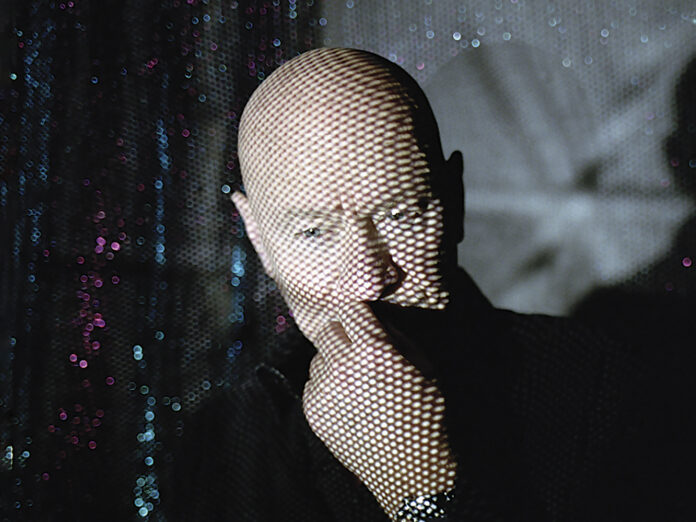The The’s excellent 1983 album, Soul Mining, captured a feeling of deep, pronounced, soul searching like few other debuts have managed. Nearly 40 years on from that record Matt Johnson found himself engaging in a similar form of intense reflection and contemplation, as he navigated getting over a serious illness, grappling with the pandemic, dealing with grief and witnessing a rapidly changing world as AI boomed. It’s been 24 years since The The’s last studio album, with Johnson largely retreating into soundtrack work in the intervening years, but after a surprise return single in 2017 and the band’s first tour in 17 years, a full comeback was put into place.
The The’s excellent 1983 album, Soul Mining, captured a feeling of deep, pronounced, soul searching like few other debuts have managed. Nearly 40 years on from that record Matt Johnson found himself engaging in a similar form of intense reflection and contemplation, as he navigated getting over a serious illness, grappling with the pandemic, dealing with grief and witnessing a rapidly changing world as AI boomed. It’s been 24 years since The The’s last studio album, with Johnson largely retreating into soundtrack work in the intervening years, but after a surprise return single in 2017 and the band’s first tour in 17 years, a full comeback was put into place.
During the making of this album, Johnson found himself reflecting on the current state of the world, which he called “fascinating” yet also “strange, inverted and hallucinogenic”. These are all feelings that have found their way onto Ensoulment, an album that tackles many of life’s big questions, topics and subjects – albeit one that is at its strongest when it steps back from those and offers up something more personal.
Tracks such as “I Want To Wake Up With You” – a slow-burn piano-based number which unfurls with an almost smokey jazz bar groove – is as tender as it is mournful and longing, with the production rich, warm and enveloping in tone. This continues on album highlight “Risin’ Above The Need” as Johnson purrs, over an almost soul groove, “I’m searching in the mirror for who I have become.” This is before it reaches its chorus via the titular refrain, which sparkles gloriously as Barrie Cadogan’s beautiful guitar melody glides underneath Johnson’s resonant yet uplifting, and quietly triumphant, vocal delivery.
When Johnson tackles bigger, broader, societal and political issues, though, things don’t quite hit with the same punch, clarity or warmth. “Cognitive Dissident” is clumsy, heavy-handed and very on-the-nose lyrically with themes around authoritarianism, control and herd mentality. Given Johnson’s spreading of conspiracy theories about Bill Gates and Covid during lockdown, it’s hard not to read certain lyrics here – “The consensus? Created/Reality? Curated” or “the unthinkable is now thinkable/The poison? It’s drinkable” – through a similar kind of truther lens.
Similarly, “Kissing The Ring Of POTUS” is pretty hard work as it reels off lines like “a psychopathic superpower spies from the sky, transmitting viruses into the mind’s eye”. Yet Johnson’s voice sounds great on tracks like this, and he glides around the words with real deftness, grace and skill. It’s just a shame about some of those words: “Zen And The Art Of Dating” sets out to be about finding human connection in a world of superficial encounters, but ultimately it’s just a very cringe depiction of life on dating apps. At times it’s difficult to ascertain whether it’s intended to be ironic or sincere, but lines like “breasts are yearning, loins are burning” fail on both counts.
It’s when Johnson looks inwards that he produces his most stirring work. “Where Do We Go When We Die?” is a beautiful tribute to his late father that wrestles with life after death, while pondering the cycles and meanings to be found in life while experiencing grief. There’s more emotional weight carried in the two lines he sings about taking his father’s clothes and books to the charity shop than can be found in any of the state of the world addresses heard elsewhere on the record.
“I Hope You Remember (The Things I Can’t Forget)” unfolds with an almost Tom Waits-like shuffle, with Cadogan’s snaking guitar lines matching the woozy percussion. Johnson leans into a slightly more gruff voice too, as he imagines a world on the brink but dives deep into the comfort of nostalgia, basking in the scent of his grandmother’s perfume and the engulfing haze of old tobacco smoke. It’s these kinds of moments and details that are needed to lift the album up from the bleakness and paranoid leanings.
Historically, The The have always been a difficult band to label. Over the years, they’ve hovered around art-rock, synth-pop, post-punk and new wave yet they’ve never really belonged to any of them. On Ensouled, things feel equally as tricky to nail down, but generally things are slower and less musically direct, and so you have an amalgamation of alt.rock, leftfield folk, pop, jazz and touches of electronica. However, while stylistically varied, it can feel a little lacking in variety and dynamism at times, as it very much sits in mid-tempo mode for much of the 12 tracks, the sprightly pop of their early period rarely appearing. Johnson feels nicely in sync with his band though, who possess both precision and personality in their playing.
Regardless of a few wrong turns, it’s wonderful to have such a natural songwriting talent as Johnson back on record again. It’s just a shame he doesn’t always seem to realise that the most interesting soul he could mine here is his own.
When you purchase through links on our site, we may earn an affiliate commission. Here’s how it works.



